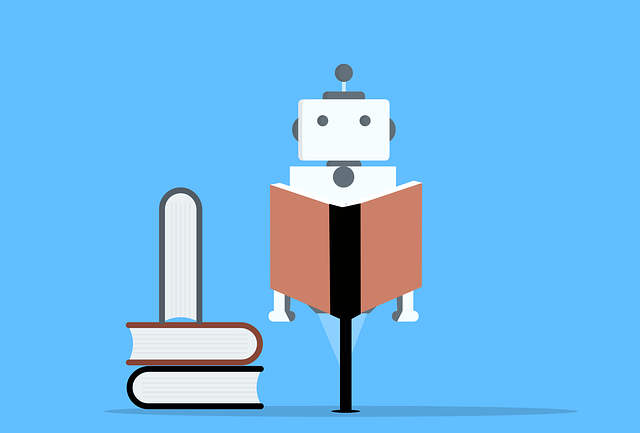AI workflows for engagement personalize customer experiences by leveraging machine learning to analyze data and anticipate needs. They adapt communication and content based on user behavior, enhancing satisfaction and loyalty. Implementing AI agents across touchpoints from search to post-purchase boosts brand connections, reduces response times, and drives conversions. Measuring success through KPIs allows businesses to refine strategies and maintain a competitive edge in the dynamic digital era.
Personalizing customer experiences is vital for any business aiming to thrive in today’s competitive market. Leveraging AI workflows offers a powerful solution, allowing companies to enhance customer engagement and foster stronger relationships. This article delves into the strategic implementation of AI workflows for engagement, guiding you through understanding key touchpoints, customizing interactions, and measuring success. By exploring these aspects, businesses can create seamless, personalized journeys that drive customer satisfaction and loyalty.
- Understanding AI Workflows for Engagement
- Identifying Key Customer Touchpoints
- Implementing AI to Personalize Interactions
- Measuring Success and Iterating Strategies
Understanding AI Workflows for Engagement

In the realm of customer engagement, Artificial Intelligence (AI) workflows are transforming traditional interactions into personalized experiences. AI workflows for engagement leverage machine learning algorithms to analyze vast amounts of customer data, enabling businesses to anticipate and cater to individual needs. These intelligent systems can dynamically adapt communication channels, content, and timing based on user behavior, preferences, and past interactions.
An AI assistant or agent, powered by automation, can provide proactive support, offer tailored recommendations, and ensure consistent, seamless experiences across various touchpoints. By understanding customer journeys and leveraging AI automation, businesses can enhance engagement, foster stronger connections, and drive significant improvements in overall customer satisfaction and loyalty.
Identifying Key Customer Touchpoints

In today’s digital era, understanding and optimizing customer touchpoints are paramount for businesses aiming to enhance engagement and satisfaction. Identifying these key points involves a strategic analysis of every interaction a customer has with your brand, from initial awareness to post-purchase support. Think of online search queries, website visits, social media interactions, emails, live chats, phone calls, and even in-store experiences—each represents a touchpoint where an AI workflow can be seamlessly integrated. An AI agent or chatbot, for instance, can swiftly handle simple customer inquiries at scale, freeing up human agents to focus on more complex issues.
By leveraging ai automation agencies, businesses can streamline processes, reduce response times, and provide personalized experiences across all touchpoints. Chatbots, powered by advanced natural language processing, can engage in contextual conversations, anticipate user needs, and offer tailored solutions. This level of customization not only improves customer satisfaction but also fosters stronger relationships between customers and brands, ultimately driving repeat business and loyalty.
Implementing AI to Personalize Interactions

Implementing AI to personalize interactions is a game-changer for customer engagement. By leveraging AI workflows, businesses can create tailored experiences that cater to individual customer needs and preferences. An AI agent, integrated into various touchpoints like websites, apps, or messaging platforms, can analyze vast amounts of data to predict customer behavior and deliver relevant content in real-time. This level of personalization enhances the overall customer journey, making interactions more meaningful and efficient.
For instance, an ai funnel can guide users through a sales process by offering customized product recommendations based on their browsing history and previous purchases. Chatbot marketing, powered by AI, allows for 24/7 customer support and immediate response to common queries. These personalized interactions not only improve customer satisfaction but also drive conversions by fostering stronger connections between brands and their audience.
Measuring Success and Iterating Strategies

Measuring success is a vital aspect of any AI workflow for engagement. By setting clear KPIs and tracking them over time, businesses can gauge the effectiveness of their personalized customer touchpoints. This data-driven approach allows for continuous improvement and refinement of strategies, ensuring that the ai automation agency enhances the customer experience rather than creating additional friction. For instance, an ecommerce automation platform might monitor conversion rates, average order value, and customer satisfaction scores to evaluate its impact on sales and retention.
Iterating strategies based on performance data is crucial for maintaining a competitive edge in the market. Regular reviews and adjustments ensure that the AI agent’s recommendations remain relevant and aligned with evolving customer preferences. An effective ai automation agency will not only optimize processes but also foster a culture of experimentation, encouraging teams to embrace new ideas and technologies that drive better outcomes. This iterative process is key to staying ahead in today’s dynamic business landscape.
Personalizing customer experiences through AI workflows is not just a trend, but a necessary step for businesses aiming to thrive in a competitive market. By understanding customer touchpoints, implementing intelligent solutions, and continuously measuring success, companies can create meaningful interactions that drive engagement and loyalty. The ai workflow for engagement is a powerful tool that, when utilized effectively, can revolutionize how businesses interact with their clients, ultimately fostering stronger relationships and driving growth.
